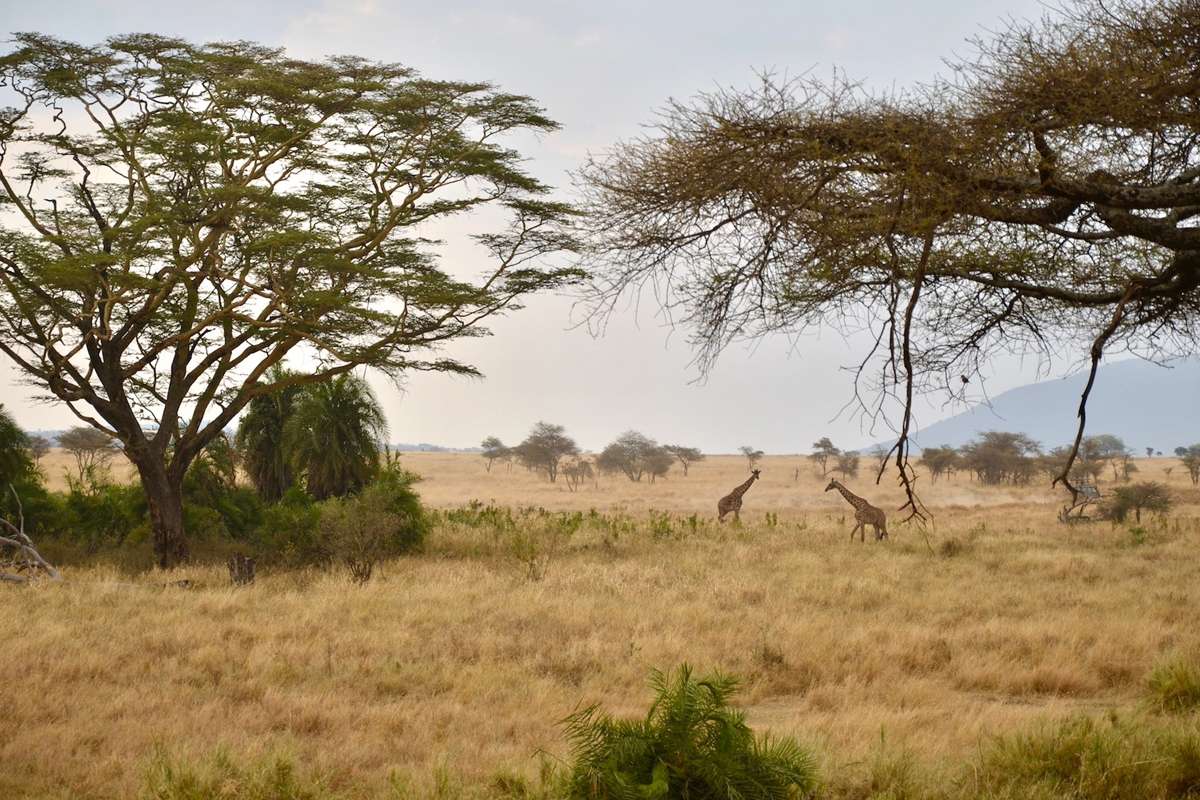Tanzania’s national parks are world-famous for their incredible wildlife, breathtaking landscapes, and iconic safari experiences. But starting in 2024, the country is introducing a series of new regulations aimed at preserving its natural treasures while improving visitor experiences. If you’re planning a trip to Tanzania this year, it’s essential to stay updated on these changes to avoid any surprises and ensure a smooth, hassle-free adventure.
In this guide, we’ll break down the new regulations, including updates on park fees, entry permits, visitor limits, and activity restrictions. We’ll also provide helpful tips on how to adapt to these changes and maximize your time exploring Tanzania’s wild beauty.
Tanzania National Park Regulations 2024
New Park Entry Fees and Permit Changes
One of the most significant updates for 2024 is the revision of park entry fees and permit requirements across Tanzania’s national parks. These adjustments are part of the Tanzania National Parks Authority’s (TANAPA) efforts to support conservation initiatives and manage the growing number of tourists more effectively.
- Updated Fees: Many parks have seen a slight increase in entry fees, particularly popular spots like Serengeti, Ngorongoro Crater, and Mount Kilimanjaro. For example, entry fees for Serengeti are now $80 per person per day, up from $70, while Ngorongoro Crater permits have increased from $60 to $70.
- Permit Requirements: Certain parks, such as Mount Kilimanjaro and Gombe Stream, now require special permits in addition to standard park entry fees. These permits must be secured in advance, especially during peak seasons.
- Multi-Park Passes: To encourage longer stays and cross-park exploration, TANAPA is introducing multi-park passes that offer discounted rates for visiting two or more parks within a set period.
Insider Tip: If you’re planning a multi-park safari, consider getting the multi-park pass—it’s a cost-effective way to explore multiple parks like Serengeti, Tarangire, and Ruaha in one trip.
Daily Visitor Caps in High-Traffic Parks
To protect fragile ecosystems from over-tourism, Tanzania is implementing daily visitor caps for some of its most popular parks, including Serengeti National Park, Ngorongoro Crater, and Mount Kilimanjaro. These limits are designed to reduce human impact, minimize crowding, and ensure that visitors have a more intimate wildlife experience.
- Serengeti National Park: The park will now limit the number of daily vehicles in certain zones, particularly around the Seronera region, a popular wildlife viewing area.
- Ngorongoro Crater: There will be a cap on the number of vehicles allowed in the crater at any given time, reducing congestion and preserving the area’s unique habitat.
- Mount Kilimanjaro: Due to safety concerns and environmental impact, the number of daily climbers on popular routes like Machame and Marangu will be strictly regulated.
Pro Tip: If you’re traveling during peak season (June-September), book your permits and accommodations well in advance to secure your spot, as spaces will fill up quickly.
Restrictions on Certain Activities
The new regulations also include stricter controls on activities like drone use, night game drives, and off-road driving, which have previously raised concerns over their impact on wildlife and the environment.
- Drone Use: While drones have become popular for capturing stunning aerial footage, their use is now prohibited in most parks unless special permission is granted by TANAPA. The application process for drone permits can be lengthy, so plan ahead if aerial photography is a must for you.
- Night Drives: Night game drives, which allow visitors to see nocturnal wildlife, are now restricted to specific parks and require a separate permit. Only certified guides are permitted to conduct these tours.
- Off-Road Driving: Off-road driving is banned in all national parks to prevent damage to delicate vegetation and minimize disturbance to wildlife. Stick to designated trails and adhere to park regulations to avoid hefty fines.
Insider Tip: If night drives are on your wishlist, consider visiting parks like Tarangire or Lake Manyara, where these activities are still permitted under the new rules.
Focus on Sustainable Tourism and Eco-Friendly Practices
In line with global trends, Tanzania is pushing for more sustainable tourism practices. The new regulations emphasize eco-friendly activities and accommodations, encouraging tour operators and visitors to adopt practices that reduce their environmental footprint.
- Eco-Camps and Lodges: TANAPA is prioritizing the development of eco-friendly camps and lodges within the parks. These accommodations use renewable energy, minimize waste, and contribute to local conservation efforts.
- Ban on Single-Use Plastics: Single-use plastics, such as plastic bags and bottles, are now banned in all national parks. Visitors are encouraged to bring reusable water bottles and eco-friendly packaging.
- Conservation Fees: An additional conservation fee of $10 per visitor has been introduced for select parks, with funds going directly to anti-poaching efforts, habitat restoration, and community projects.
Pro Tip: Choose eco-certified lodges and tour operators that align with sustainable practices to support conservation and enhance your safari experience.
Enhanced Safety and Security Measures
To improve visitor safety and enhance the overall experience, TANAPA is increasing ranger patrols, upgrading park infrastructure, and establishing more stringent guidelines for safari vehicles and guides.
- Safari Vehicle Standards: All safari vehicles must now meet specific safety and environmental standards. Expect to see newer, well-maintained vehicles with lower emissions and better facilities.
- Ranger Presence: Increased ranger presence in remote parks like Ruaha and Katavi ensures better protection for both visitors and wildlife. This move also helps deter poaching and illegal activities.
- Emergency Protocols: New emergency protocols, including air evacuation services for medical emergencies, are being put in place in collaboration with local hospitals and private operators.
Quick Tip: Always carry a charged phone, GPS, and emergency contacts when visiting remote areas. Make sure your tour operator is well-versed in safety procedures.
How to Navigate These Changes: Practical Tips for Tourists
Navigating Tanzania’s new national park regulations might seem daunting, but with a little preparation, your safari experience can still be seamless and unforgettable. Here’s how to make the most of your trip under the 2024 rules:
- Plan Ahead: Book your park permits, accommodations, and activities well in advance, especially if you’re traveling during peak season.
- Choose Less-Visited Parks: To avoid daily visitor caps, consider exploring lesser-known parks like Selous (Nyerere National Park), Katavi, or Udzungwa Mountains, which offer incredible wildlife experiences without the crowds.
- Go Eco-Friendly: Bring your own reusable water bottles, and biodegradable toiletries, and avoid single-use plastics to comply with new eco-regulations.
- Work with Local Operators: Local tour operators are often more familiar with the latest regulations and can help you navigate the permit system and activity restrictions.
What Do These Regulations Mean for You?
Tanzania’s new national park regulations for 2024 reflect a commitment to protecting its unique ecosystems and ensuring that the magic of its wilderness can be enjoyed for generations to come. While some of these changes may add complexity to trip planning, they also enhance the quality of your safari experience, offering more exclusive, sustainable, and meaningful encounters with nature.
By staying informed and adapting to these new rules, you can make your Tanzanian adventure truly unforgettable—one that not only thrills but also supports conservation and local communities.
Ready to explore Tanzania’s wild side in 2024? Remember to plan, go green, and embrace the spirit of adventure! Karibu Tanzania! Welcome!
Experience the Best of Tanzania!
Check out our pages for essential information on:
- Tanzania Family Safari
- Tanzania Honeymoon Safari
- Tanzania Safari
- Tanzania Walking Safari
- Terms and Conditions
- Zanzibar Vacation
- Maasai Village Experience
Visit our website to plan your amazing adventure today!



